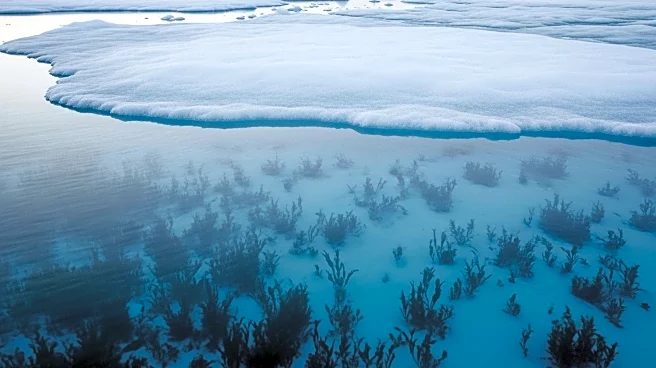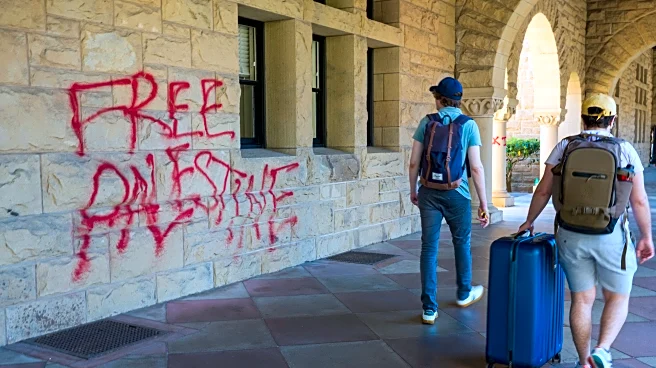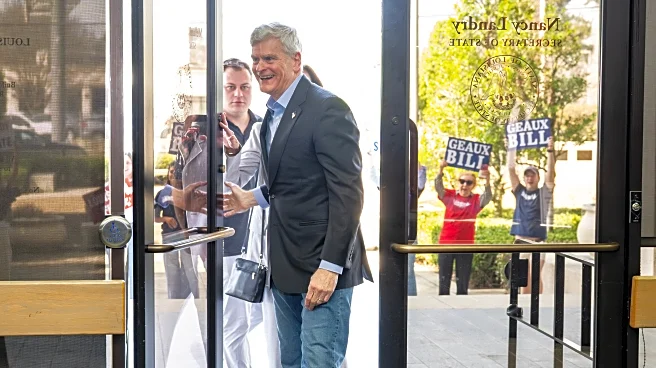What's Happening?
Over 1000 scientists worldwide are supporting a collaborative approach to marine governance in the Central Arctic Ocean (CAO) by advocating for a fishing ban. This initiative aims to protect the region's
ecosystems until the effects of industrial activities are better understood. In 2018, nine countries and the European Union agreed not to fish in the CAO for at least 16 years, highlighting a commitment to sustainable ocean management. The CAO, comprising 1.1 million square miles of international waters, is experiencing rapid climate change, leading to melting sea ice and potential new industrial activities. The agreement is unique in its collaborative approach, involving scientists and Indigenous local knowledge to monitor and research the ecosystem.
Why It's Important?
The fishing ban in the Central Arctic Ocean is crucial for preventing unregulated fishing and industrial activities that could severely impact the ecosystem. As the Arctic warms, the potential for commercial fishing, industrial shipping, and deep-sea mining increases, posing threats to marine productivity and biodiversity. The agreement serves as a model for international cooperation in marine management, emphasizing the need for clear authority over resources to prevent disputes and illegal activities. Protecting the CAO is vital for allowing natural processes to adapt to climate change and ensuring human activities do not cause irreversible harm.
What's Next?
The future of the CAO Agreement depends on continued collaboration among the involved countries and the integration of Indigenous knowledge. As new governmental leaders take office, there may be varying interpretations of the fishing bans, potentially affecting the agreement's stability. The need for future regulations regarding industrial maritime activities remains, with questions about species, numbers, and timing of commercial fishing. The agreement highlights the importance of extending this approach to marine governance globally, ensuring sustainable practices are adopted worldwide.
Beyond the Headlines
The CAO Agreement incorporates the involvement of Arctic Indigenous Peoples, promoting social sustainability governance by recognizing the needs of local residents. This approach is grounded in an ecosystem perspective, ensuring the protection of the CAO waters for those who rely on them. The agreement serves as a reminder of the importance of integrating local knowledge into global environmental policies, fostering a more inclusive and effective approach to conservation.












